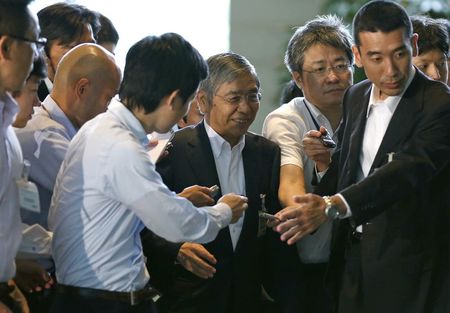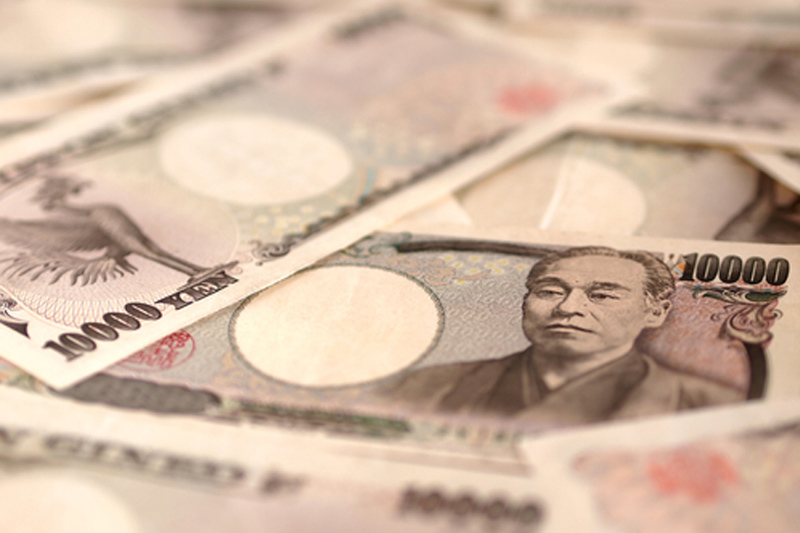By Leika Kihara
TOKYO (Reuters) - Bank of Japan Governor Haruhiko Kuroda said it has tools available if it were to ease monetary policy further, but stressed that he saw no need to act now given steady progress towards meeting its price target.
"I don't think there are limits to what additional steps we can take," Kuroda told a television programme on Thursday, when asked whether the BOJ had deployed all available options when it launched its massive stimulus programme in April last year.
"If necessary, we have room to take appropriate measures. But for now, we're making steady progress in meeting our price target. I don't think now is the time to specifically discuss adjusting monetary policy," he said, dismissing the idea of easing policy further near-term to ease the pain from a sales tax hike in April.
Kuroda did not elaborate on what additional assets the BOJ could buy if it were to ease policy further, saying only that there are "many kinds" of financial assets in Japan that the central bank can tap if necessary.
The BOJ has stood pat on monetary policy since deploying an intense burst of stimulus in April last year, when it pledged to double base money via aggressive asset purchases to achieve its 2 percent inflation target in roughly two years in a country mired in grinding deflation.
Kuroda has repeatedly said that Japan was on track to meet the BOJ's price target with consumer inflation now having accelerated to around 1.3 percent, signalling that no additional easing was needed for the time being.
But a severe economic contraction in the second quarter, caused mainly by a sales tax hike in April, has led to some market speculation that the BOJ may ease again to revive growth before a scheduled second increase in the tax rate in October next year.
Kuroda said he was confident that the economic growth will turn positive in the July-September quarter as rising wages and corporate revenues make up for the pain from the April tax hike.
On the yen's recent declines against the dollar, Kuroda repeated that it was a natural move given the U.S. Federal Reserve is eyeing tightening monetary policy even as the BOJ maintains its massive stimulus.
He also dismissed growing views among analysts that further yen declines may do more harm than good to Japan's economy by boosting import costs.

"I don't think current yen declines have an extreme negative impact on Japan's economy," he said. "Regardless of whether it's a yen rise or a yen fall, it's desirable for the yen to move in a way that reflects the real state of the economy."
(Reporting by Leika Kihara; Editing by Chris Gallagher/Ruth PItchford)
